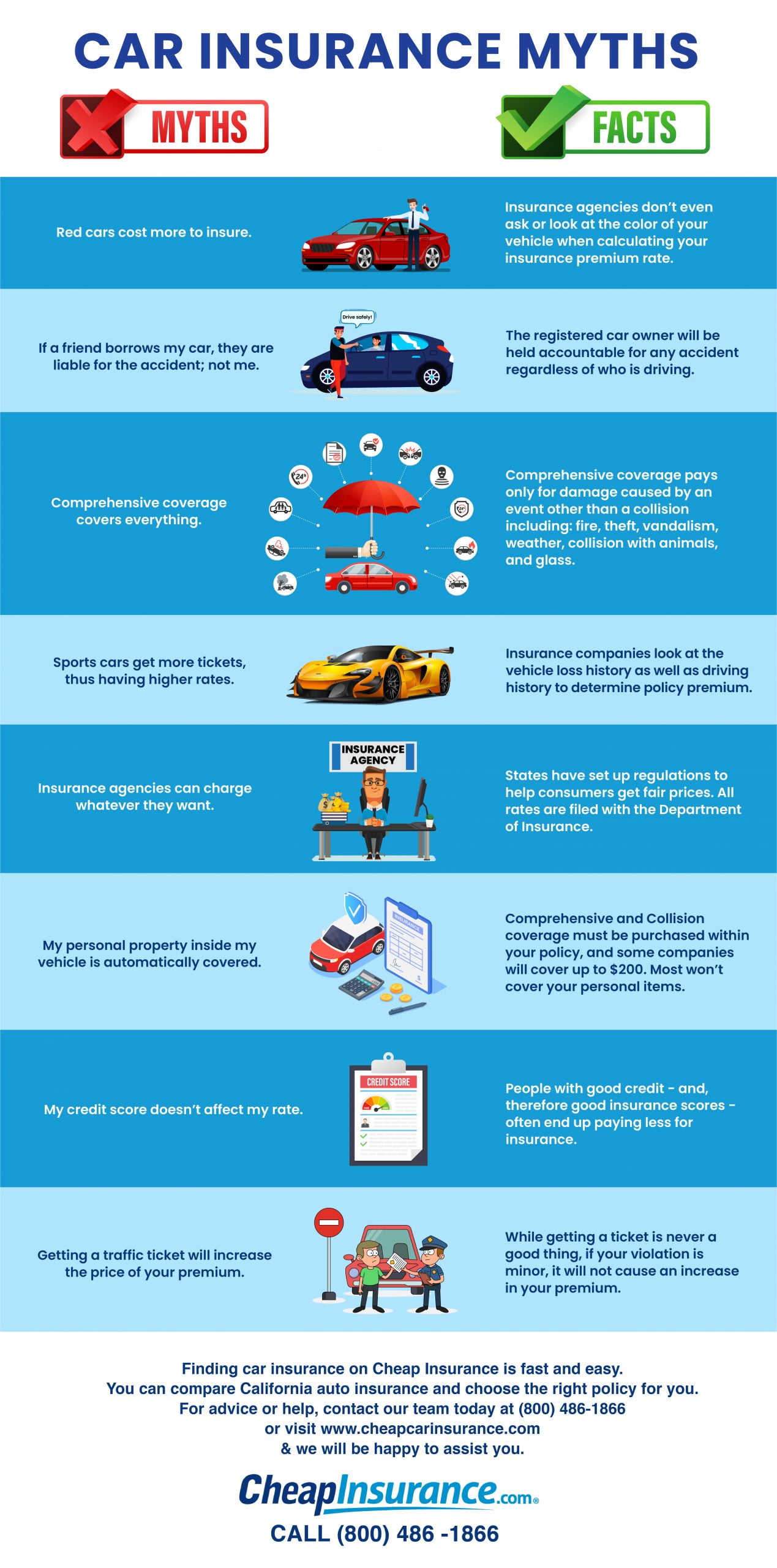
Red cars cost more to insure.
Cheap cars cost less to insure.
If a friend borrows my car, they are liable for the accident; not me.
Comprehensive coverage covers everything.
False. Comprehensive coverage pays only for damage caused by an event other than a collision including:
- Fire
- Theft
- Vandalism
- Weather
- Collisions with animals
- Glass
Not all scenarios, circumstances, and events are covered under comprehensive. If you have questions about your comprehensive coverage call your insurance provider.
Sports cars get more tickets, thus having higher rates.
Insurance agencies can charge whatever they want.
False. States have set up regulations to help consumers get “fair” prices. Insurance agencies are required by their respective states to show how they calculate their insurance premiums. All rates are filed with the Department of Insurance.
My personal property inside my vehicle is automatically covered.
False. Comprehensive and Collision coverage must be purchased within your policy, and some companies will cover up to $200. Most won’t cover your personal items, though. This is where renter’s or home owner’s insurance comes in. Your comprehensive coverage will cover any items that are stolen or damaged due to fire, vandalism, hail, and earthquakes. However, you are required to pay your deductible to receive the value of the items damaged.
I need to buy additional coverage for a rental car.
My credit score doesn’t affect my rate.



